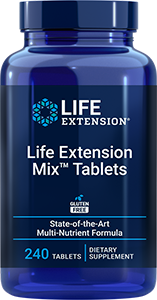| In an article published online on August 18, 2011 in the journal Stroke, researchers at Université Laval Quebec report that the administration of the omega-3 fatty acid docosahexaenoic acid (DHA), which occurs in fish oil and algae, reduces damage caused by stroke in an animal model. "Large prospective cohort studies and randomized trials have shown that fish oil intake decreases the risk of death from coronary heart disease," Jasna Kriz and colleagues write. "Several lines of epidemiological evidence also indicate that consumption of fish is associated with reduced risk of ischemic stroke, although this association is not consistently detected. Because fish is a major source of docosahexaenoic acid, it can be hypothesized that DHA is a potential nutraceutical candidate for treatment of ischemic stroke." The team gave male mice a diet supplemented with DHA, a diet deficient in omega-3 polyunsaturated fatty acids, or a control diet for three months. Stroke was induced by middle cerebral artery occlusion and the animals were examined for early neurologic defects. The size of the stroke-damaged areas was assessed at 48 hours and at seven days following the event, and blood samples were analyzed for markers of inflammation and other factors. Mice that were treated with DHA had areas of ischemic damage that were 25 percent smaller and higher levels of a molecule known as Bcl-2, which prevents apoptosis (programmed cell death), compared with the other groups. The DHA-treated animals also had lower levels of the inflammatory markers COX2 and interleukin-1, as well as a higher ratio of omega-3 to omega-6 fatty acid levels in their brains. "The consumption of omega-3s creates an anti-inflammatory and neuroprotective environment in the brain that mitigates damage following a stroke," explained Dr Kriz, who is a member of the Université Laval's Faculty of Medicine. "It prevents an acute inflammatory response that, if not controlled, is harmful to brain tissue." "This is the first convincing demonstration of the powerful anti-inflammatory effect of DHA in the brain," added Frédéric Calon of Université Laval's Faculty of Pharmacy. "Since DHA is readily available, inexpensive, and reduces the risk of a number of health problems without causing significant side effects, the risk–benefit ratio tends to favor the regular consumption of fish or DHA." | 












